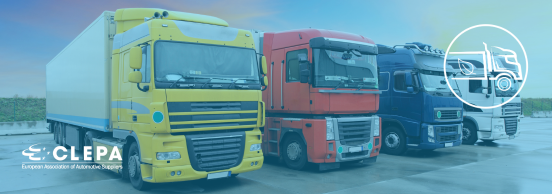Call for better CO2 regulation to safeguard the good functioning of mobility networks and logistics chains


Representing the , CLEPA and IRU have addressed a letter to Members of the European Parliament calling for their support in preserving essential technology options under the new CO2 standards proposal.
The signatories raise that the performance of the future EU road transport sector will very much depend on the technology options allowed by the CO2 standards regulation, as well as the enabling conditions required to successfully decarbonise the sector. They defend that a technology-open approach that allows for the coexistence of various vehicle propulsion systems is critical for the efficient operation of the single market, including for emergency responses to all types of crises.
The letter proposes 5 key recommendations for the CO2 regulation standards, to ensure technology diversity and guarantee an efficient decarbonisation of the freight transport sector:
-
- Leave adequate space for carbon-neutral fuels in heavy-duty vehicles (HDVs) as a long-term solution for sustainable road transport alongside electrification and hydrogen
- Implement essential enabling conditions to achieve ambitious CO2 targets and ensure timely assessment of the legislation’s effectiveness
- Exempt high-capacity vehicles from the targets
- Include new vehicle groups to the CO2 emission reduction targets for heavy-duty vehicles
- Support regional passenger transport by reshuffling bus and coach targets
In the letter, CLEPA and IRU also raise that, for a well-functioning and stable EU mobility and logistics sector, the EU should allow transport companies to decide which technology is the most suitable for the various types of operations to achieve the common goal of carbon neutrality.
Attachments
In: CLEPA News



